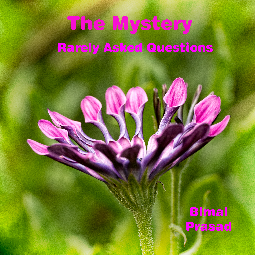Q: I would like to ask a question about the practice of Sri Ramana’s teachings and in particular the way of carrying out the self-enquiry ‘who am I?’
According to what I’ve seen so far regarding instructions, when a thought arises one enquires ‘to whom this thought has arisen’. If the answer to that is ‘to me’, the enquiry continues with ‘who am I?’
At this stage, the mind becomes silent. Are we supposed to remain in this silence until another thought arises or should we continue enquiring ‘who am I?’ every few seconds or so?
Would you be kind enough to clarify this for me.
A (Dennis): If you are committed to following those ideas that are frequently claimed as representing the essential teaching/method of Ramana, then I am not the best person of whom to ask these questions.
Ramana was not a traditional teacher; he was not trained in the methodology of any sampradAya. There is no doubt of his status as a j~nAnI and transcriptions of his talks show brilliant insights into many aspects. But I have to say that the ‘enquiry’ as you describe it is most unlikely to lead to Self-knowledge. I prefer to think that such practice can only lead eventually to the realization that one needs a teacher to provide the guidance via the proven succession of shravaNa, manana and nididhyAsana. It is primarily an intellectual process – the mind is both the problem and the solution. You have to hear the truth, expounded in a convincing manner; ask questions to clear doubts; then repeat in whatever manner is available. Silence will not tell you anything.
I also suggest you read my article on manonAsha.

